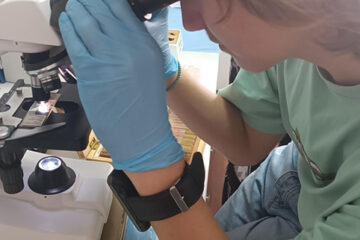Making every learning experience an opportunity to fulfil a child’s potential in the world.
Published by TLC Private School on
Making every learning experience an opportunity to fulfil a child's potential in the world.
Schools rightly intervene when a child struggles, tries to identify the cause and then provide the solution. The issues that arise are sometimes genetic, sometimes medical, sometimes because of the child’s background but the aim is all the same; to give the child the same opportunities to access education so they can fulfil their potential in the world.
At the other end of the education scale are the able children who also need help to reach their potential but whereas those with learning needs at the lower end were once stigmatised, in recent years it’s the able child who has now been labelled, who is subject to bullying, finds socialising difficult and who often displays unwanted behaviours because they can’t cope.
You only have to look at funding in the UK for the different educational needs to see that those with impediments to learning receive far more funding than the able child. Ten years ago, the government shut down its website which supported young able children and redirected the funding to supporting the less able to get into university. Whatever your thoughts on the allocation of education spending to those most in need, it doesn’t take much thought to realise that those students who may one day create a cure for cancer, solve the world’s energy needs in a green way or broker peace between warring nations are having their potential stymied. Successive governments bemoan the ‘brain drain’ but when they’re not prepared to support those who may become the ‘brains’ of tomorrow then they are negatively impacting the country’s position in the economic and technological world and, in cold hard monetary terms, reducing future GDP.
Without action, the brain drain that is often seen in post graduates may well filter down into secondary schools and maybe even primary schools. It’s not too difficult to see perhaps a major American corporation collecting data on able children then funding their private education, perhaps in a specialist school in return for contracting to work for that company once they’ve become adults. In return for this commitment, the student would get a first class funded education through to a top university and then on into research and development. Critics may argue that a child may not know what they want to do at such an early age but research shows that most young people would wish for a career in something they enjoy and that tends to equate with subjects they excel at. Equally, the paternal corporations are likely to be sufficiently large to offer a host of opportunities that may appeal to the student.
For now, the burden falls to the school which gains no benefit other than the knowledge that they will have done all they can to maximise the student’s potential.
Without a national or international programme for these children, it’s up to schools to provide piecemeal opportunities for them assisted by a small variety of commercial groups such as Potential Plus UK.
At TLC, we have collated a register of able children from amongst our students and will soon be working, through our learning support department, to offer them the opportunities to maximise their potential. In the spirit of ‘Every Child Matters’ it is our duty, as it should be of every school and every government worldwide, to address the learning needs of each child whether it be helping to overcome learning difficulties or extend their learning in their areas of strength.


